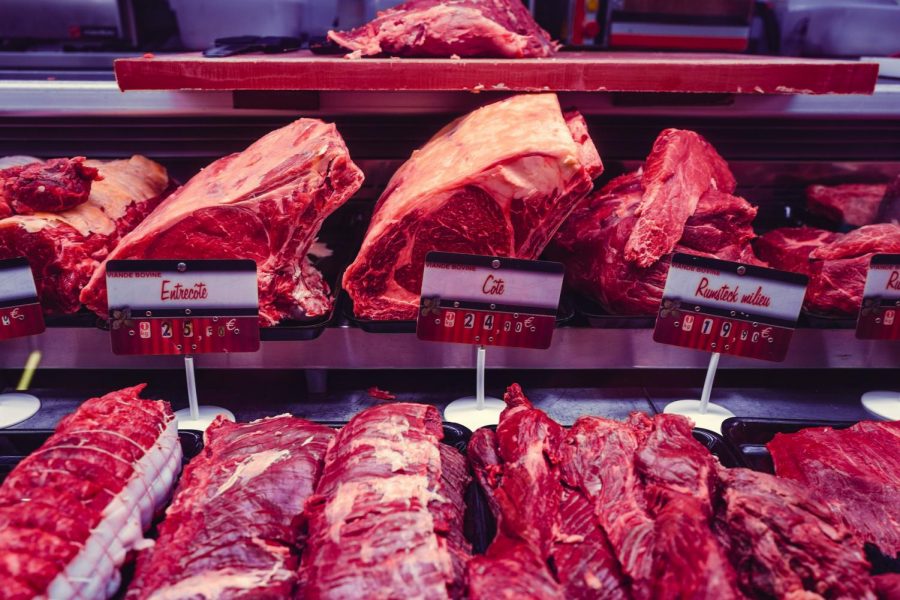Study finds not all E. coli is bad
Bacteria could help with iron deficiencies, some strains dangerous
Many consumers think meat is the main carrier of E. coli, said Stephanie Smith, a food safety specialist at WSU. However, vegetables like lettuce can also be carriers of the bacteria. Knowing this can help prevent damage, she said.
October 30, 2018
While it can be a danger in many cases, the bacteria E. coli is on the horizon for researchers as they find out more about its benefits.
Stephanie Smith, a food safety specialist at WSU working to increase food safety practices across the state of Washington, said foodborne illness is a large issue in the U.S. with 48 million documented cases yearly.
“With foodborne illness we always discuss E. coli,” Smith said. “It’s a major player.”
She said E.coli is important to discuss when educating the public on food safety.
Beef is identified as a frequent host of harmful E. coli which causes foodborne illness when ingested by humans, Smith said.
However, beef is not the only carrier of harmful E. coli strains, she said.
Fruits and vegetables are recalled for harmful E. coli contamination every year, but Smith said the general public views meat as more of a threat for carrying the pathogen.
“People might think the ground beef is dirty, but the lettuce isn’t,” she said.
There must be increased awareness of other E. coli carriers, particularly fruits and vegetables, she said. When the growing areas for these foods are contaminated with feces, the food becomes at risk for carrying strains of E. coli that cause humans harm.
Smith said in her research, about 70 percent of people know food safety practices to prevent foodborne illness; however, these practices may not be done properly or regularly. The goal, Smith said, is to provide appropriate research on food safety to people via county extension offices rather than have people consult the internet where there could be false information.
While some might believe foodborne illness will simply cause uncomfortable symptoms of diarrhea and cramping for a few days, it can be a more serious health hazard. Smith said taking food safety seriously is important because certain foodborne illnesses can cause permanent damage to organs.
“It’s a lot more than just a short bout of the stomach flu,” she said. “It can be a lifelong problem.”
However, a recent study from University of Colorado at Boulder found that E. coli may help blood cells take in iron, which could help people suffering from anemia, an iron deficiency, absorb more iron into their blood cells.
Most E. coli strains are good for people, said Carolyn Hovde Bohach, a leading researcher on E. coli in cattle at WSU.
Generally, E.coli is viewed negatively because certain types of the bacteria cause symptoms of diarrhea and cramping, which consumers may often relate to stomach flu, Hovde Bohach said. The gastrointestinal tract has many bacteria for food digestion and human health, including good strains of E. coli which help the system function, and only certain strains of E. coli cause symptoms of diarrhea and cramping.
Hovde Bohach focuses her research on intervention techniques on cattle prior to slaughter to provide a safer food supply containing less harmful E. coli. She said most E. coli are beneficial and it is the rare strains that cause human disease.
The research from Colorado shows E. coli provides benefits to a host of bacteria. The study used C. elegans and human cells as a host for the E. coli.
The analysis suggests while the E. coli look for iron in the host body, the hosts cells may have adapted to steal the iron from the bacteria, absorbing the iron into the hosts’ cells.
The research also found the addition of the bacteria to the host body resulted in higher iron levels, even with no iron added to the regular diet of the host.
This study could offer new, more effective treatments for people suffering from anemia.





















